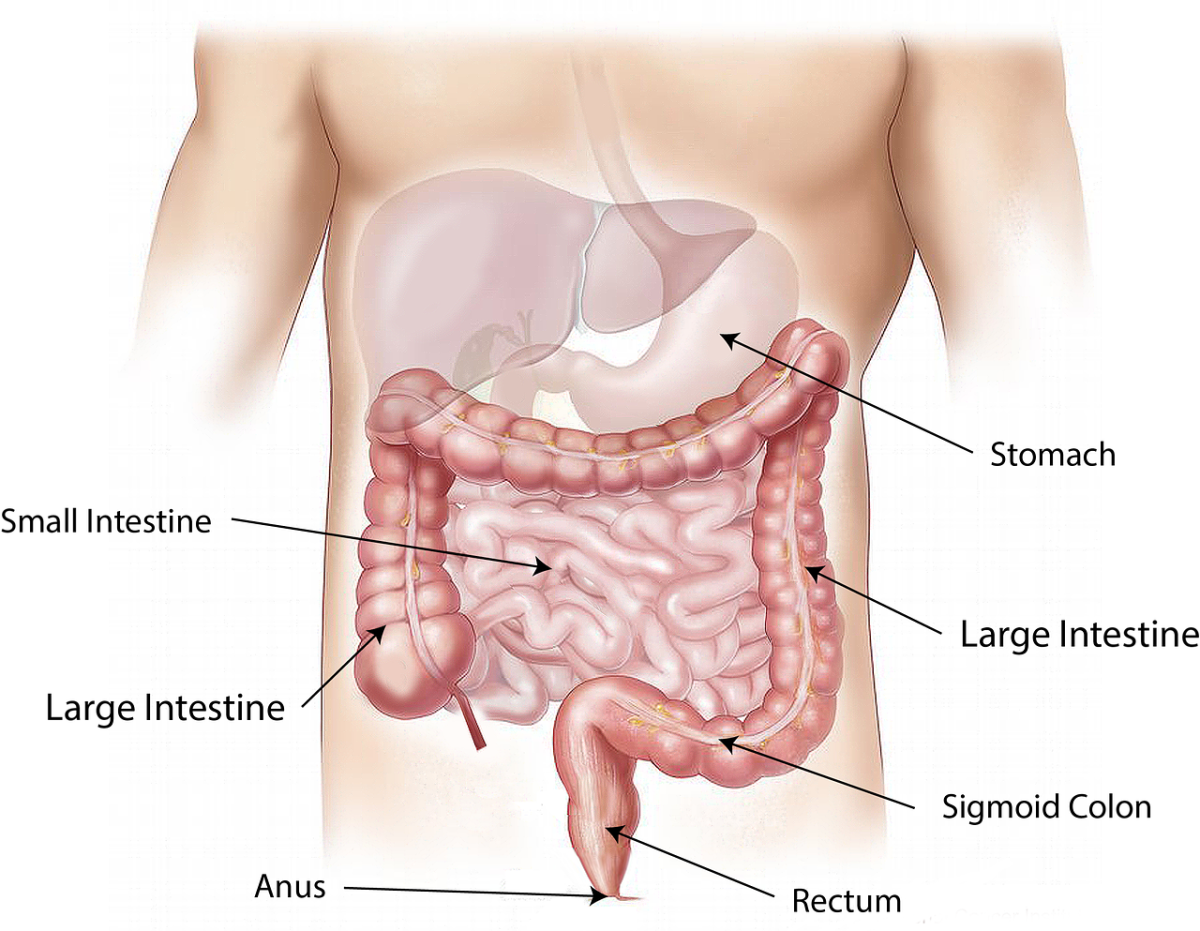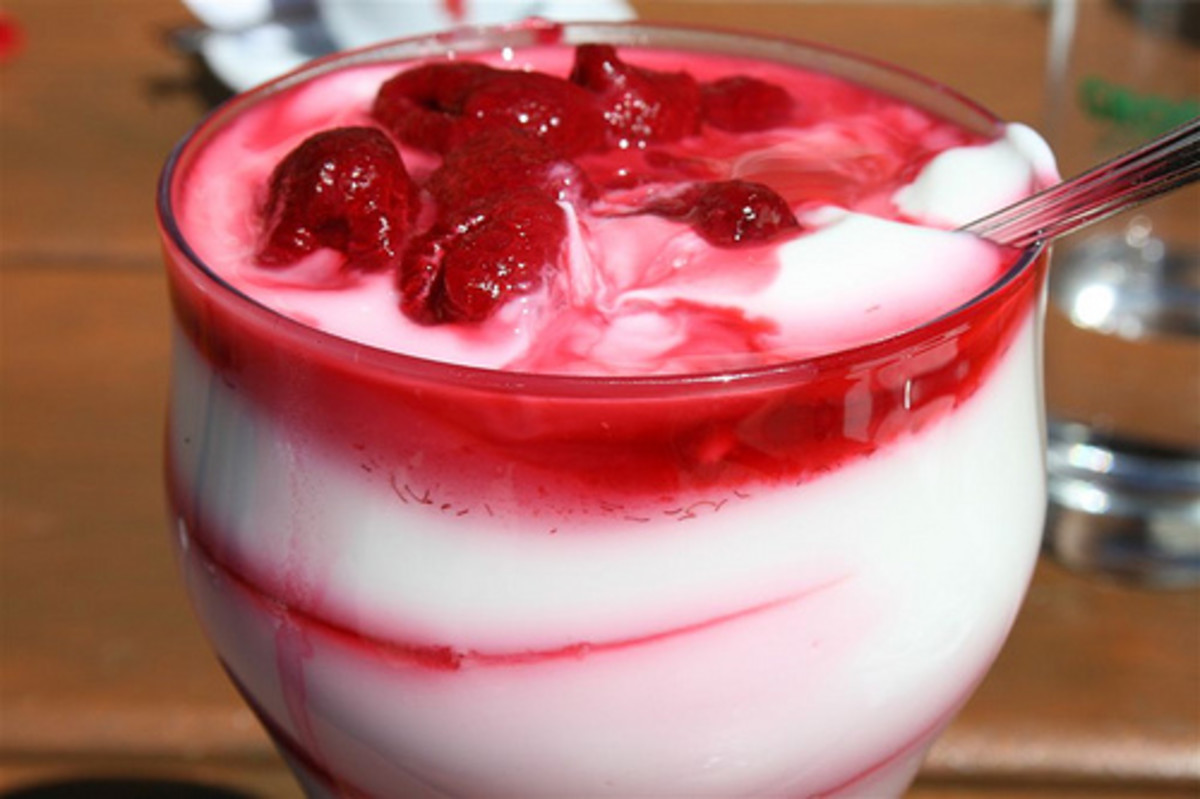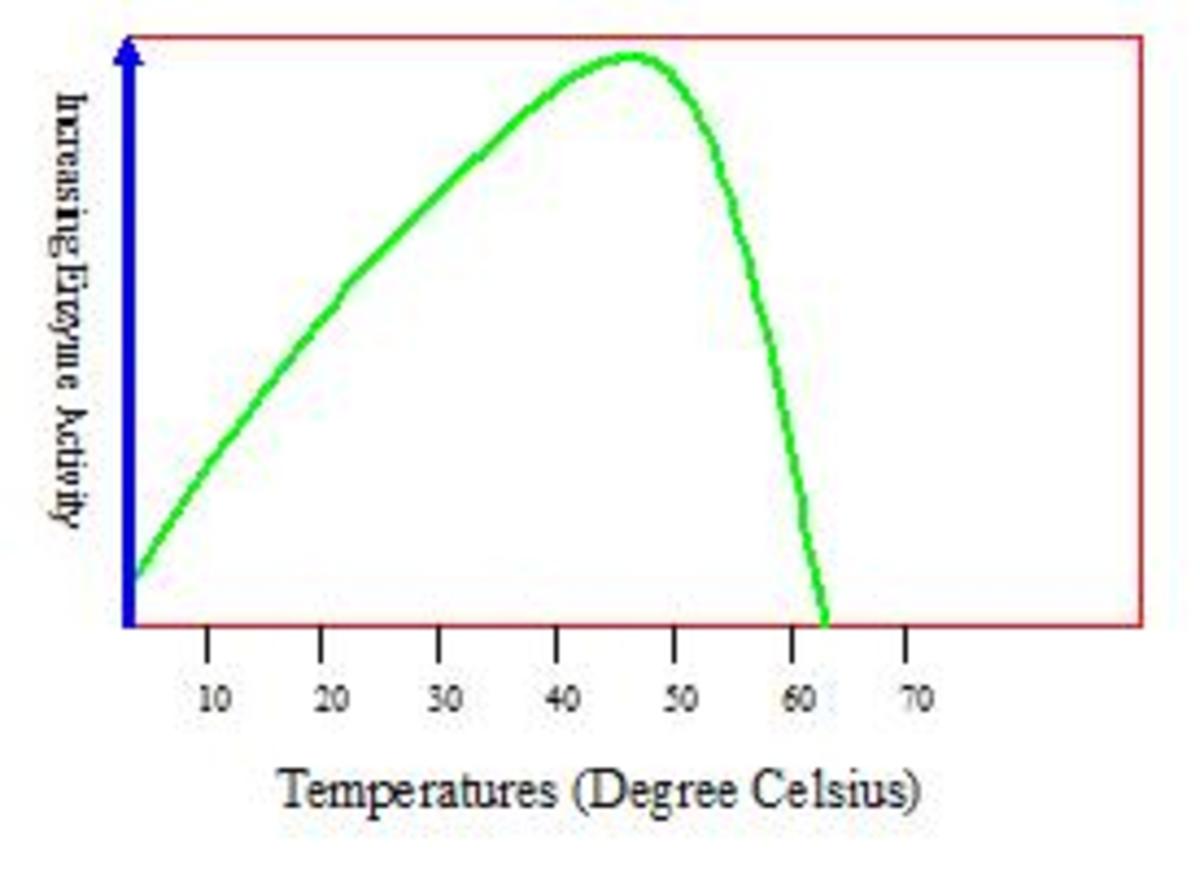How to Heal a Leaky Gut
Leaky gut is a term used to describe excessive intestinal permeability due to damaged mucous lining resulting from various suspects such as food sensitivity, environment toxins, parasitic infections, poor diet, certain medications, and possibly other causes.
Although it is difficult to estimate what percentage of the population have leaky gut because it is rarely tested, but many believe that it is quite common.
The intestinal mucosal lining is supposed to let good things into the bloodstream and keep bad things out. It lets amino acids and nutrients from digested food in. And it keeps bacterial, toxins, and undigested food out.
However, when this lining is too permeable known as leaky gut, bad things from the gut get through the mucosal barrier and gets into the bloodstream. And if one's digestive system is not functioning optimally, undigested or partially digested proteins can get through the lining and into the bloodstream too.
Understandably so, when these foreign particles get though the gut lining into the bloodstream, the immune system launches an attack on these particles. Roughly 70% of our immune system is located within this gut barrier.
Causes of leaky gut
Some causes of leaky gut includes ...
- Chronic Stress
- Dysbiosis
- Environmental Contaminants
- Excessive Alcohol
- Poor Diet
- Certain Medications (such as nonsteroidal drugs)
- Food sensitivity
- Lectins (antinutrients found in legumes)
- Vitamin D deficiency [reference]
As mentioned in the book Digestive Wellness, ...
"No matter what the cause, having a leaky gut leads to increased inflammation." [page 96]
Cyrex Labs has an "Intestinal Antigenic Permeability Screen" that can test for leaky gut
A leaky gut can lead to food sensitivities and autoimmune conditions. A leaky gut is one of the risk factors for autoimmune disease. People with extensive food sensitivities or autoimmune condition often have leaky guts.
Hence anyone with food sensitivities and/or any kind of autoimmune condition should heal the leaky gut in addition to whatever medical treatment prescribed by your physician.
So how can we heal the leaky gut? That is what we will attempt to answer in this article.
Dr. Robert Lustig writes that "Fructose may also contribute to breakdown of the intestinal barrier" [page 124 of Fat Chance]
And interestingly, Jack Kruse writes that ...
"I believe the number one risk factor for the initiation of this syndrome is excessive environmental EMF and artificial light."
Now you know why I try to avoid EMF by not blow-drying my hair at night.
Factors affecting leaky gut
The book Digestive Health with Real Food has a table showing the factors that positively or negatively affect leaky gut.
Some of the things that contribute to leaky gut are stress, inflammation, NSAIDs, alcohol, gluten, high intensity exercise, SIBO, malnutrition, smoking, BPA, GI infections, and toxins (such as lectins, saponins, and environmental toxins) .
Some of the things that heals a leaky gut are relaxation, bone broth, L-glutamine, some nutrients like vitamin A and zinc, probiotics, and colostrum.
Avoid Food Sensitivities
If you are sensitive to a food and still continue to consume that food, you will be exacerbating your leaky gut. Note that food sensitivities can be subtle, can be without any symptoms, can have delayed symptoms of days, or can have general non-specific symptoms that are unrelated to digestive symptoms. For example, a person who ate a food that he/she is sensitive to can have brain fog two days later.
Hence, many people have food sensitivities and do not know it. Some ways to detect food sensitivity is to perform an elimination diet and/or run a blood antibody test.
Cyrex Labs has a good comprehensive blood antibody test for gluten sensitivity.
Oxford Biomedical Technologies has a the LEAP MRT test can test for sensitivity against 150 foods.
An elimination diet involve eliminating various foods for some time and then introducing the food one-by-one and noting any changes in symptoms. An experienced practitioner can guide you on this.
The Virgin Diet book has a version of an elimination diet that eliminates seven food categories to see if you are sensitive to them. The seven food categories that people are commonly sensitive to are gluten, soy, dairy, eggs, corn, peanuts, and certain refined sugars.
If one is really concerned about gut health, one might want to eliminate these seven most problematic foods from the diet whether one is sensitive to them or not. Afterall, they are only seven foods -- albeit they do form a majority of the many people's diet.
Avoid Gluten
Gluten is a protein found in wheat, barley, rye, and any food products made from them. Gluten is one of the most problematic proteins for the digestive system. If you have Celiac disease, you have to avoid gluten 100% -- no if's and/or but's. If you have any kind of autoimmune condition, it is highly recommended that you avoid gluten and be tested for gluten sensitivity.
For anyone else, it is wise to avoid gluten. This is true even if you have tested negative for gluten sensitivity because ....
- blood tests can give false negatives,
- a person who is not gluten sensitive now can develop gluten sensitivity later in life with increasing risk depending on one's lifetime consumption of gluten
- some believe that gluten affects the tight junctions of the mucosal lining in everyone to some extent even if you are not technically sensitive to gluten.
Often gluten intolerance is associated with leaky gut syndrome and imbalance of gut flora. The Immune System Recovery Plan writes that ...
"It is entirely possible that impaired digestion and a leaky gut due to a lack of beneficial gut flora are the reasons some people develop gluten issues in the first place. ...The bottom line is that having enough friendly flora in your gut reduces the incidence of allergies and autoimmune diseases, and restoring and balancing these flora in the gut can treat and reverse these conditions as well."
The book suggest to remove all white sugar and white flour from diet, aim to eat 30 grams of fiber per day, and consume live active cultures foods.
Avoid GMO foods
Genetically modified foods can cause leaky gut and food sensitivities. This is because some genetically modified crop are designed to produce their own pesticides such that when insects eat them, it breaks open the insects' stomach. Although we are much larger than insects, it is conceivable that an similar effect to a much lesser extent can happen in our intestinal tracts.
It is not just one sole activist claiming the dangers of GMO, there are dozens of experts making such suggestions in the documentary Genetic Roulette by Jeffry Smith.
In the below video, Jeffry Smith explains how some GMO foods can cause leaky gut. Some GMO plants can manufacture their own pesticides that breaks open the insects' stomachs when consumed. Although we are much larger than insects, do you want to be eating kernels of GMO plants (such as non-organic corn and soy) that have that kind of effects. The video goes on to show the negative impact of animal on GMO feeds versus the animals that were on non-GMO feeds.
Chris Kresser writes ...
"The gut is most susceptible to the potential dangers of GMO consumption. Bt toxin produced by GMO corn has been shown to significantly alter immune function in mice, and may cause disrupted immune function in the gut. ... While the available evidence is still mixed, it seems likely that genetically modified foods could have an effect on the immune response as well as the permeability of the gut."
Watch below video on how digestive problems clear up on non-GMO diets.
Avoid Gut-Unfriendly Foods by Adopting the Autoimmune Protocol
Sarah Ballantyne (aka The Paleo Mom) has a good explanation of leaky gut and wrote an excellent article on "The Autoimmune Protocol" that is based off of the Paleo Diet template.
First, the Paleo Diet is one that advocates eating whole foods and avoiding, grains, legumes (beans), and dairy -- and their derivative products. Note that by eliminating grain products, you are automatically eliminating gluten. By eliminating dairy products, you are automatically eliminating casein (another problematic protein to digest) and lactose (problematic sugar in cow's milk).
The Autoimmune Protocol goes further and in addition eliminates the following foods that can irritate the gut and/or increase gut permeability...
- gluten cross-reactive foods. Cyrex labs have a gluten-cross reactive foods test which tests for casein, chocolate, yeast, coffee, soy, egg, corn, rice, potatoes, and others.
- eggs (the egg white being more problematic than the yolk, but eliminate both)
- nuts (coconut and its derivative is okay)
- seeds
- cocoa, coffee, and seed-based spices
- nightshades (potatoes, tomatoes, eggplants, sweet and hot pepper)
- Alcohol
- Non-steroidal anti-inflammatory drug (such as asprin or ibuprofen)
Saponins (such as found in quinoa) can also increase gut permeability [reference here]. People think quinoa is a grain, but it is really a seed. Regardless, if you are following the autoimmune protocol, it would be in the elimination list.
Now that may sound like quite a restrictive diet. Depending on your severity of your leaky gut or your level of sensitivity to particular food, not everyone needs to eliminate all these foods all the time. You need to determine your level of adoption based on your individual genetics, food sensitives, and condition. Some people find that they can start to tolerate some of these foods as their gut heals. Particular food sensitivities changes. A person may be sensitive to one thing now, but sensitive to another thing later on.
Intestinal Repair Complex by BioGenesis
BioGenesis is company that makes nutraceuticals. Their Intestinal Repair Complex contain L-glutamine as well as plant enzymes, aloe vera, marshmallow root, MSM, and other herbs that helps repair and sooth the intestinal tissues.
Consume Glutamine as in Bone Broth
Now that we have eliminated the food that breaks down the gut. We have to supply foods that build up the gut. The intestinal lining loves and needs the amino acid glutamine.
Glutamine is an "conditionally essential" amino acid, meaning that under optimal circumstances, the body can produce it from other raw ingredients. However, often the body can not do this effectively or in sufficient quantity. Hence, we should get glutamine from our diet.
Wikipedia says that ...
"Dietary sources of L-glutamine include beef, chicken, fish, eggs, milk, dairy products, wheat, cabbage, beets, beans, spinach, and parsley"
Bone broth is an excellent source of glutamine. You can learn the benefits of bone broth in the article Why Broth is Beautiful: Essential Roles for Proline, Glycine and Gelatin. Interestingly, it writes to not cook or microwave the broth in a microwave as it alters the molecular structure.
Dr. Atkins' Vita-Nutrietn Solution: Nature's Answer to Drugs, writes that glutamine ...
"rapidly facilitates healing and restores the health of mucous membranes inside the colon."
Learn more about glutamine for gut health. Glutamine is also available in supplement form as L-Glutamine.
Consume Probiotics
Having a good digestive system means having a good gut flora. A good gut flora is one that has a good balance between the good and bad bacterial. Problems occur when you let the bad bacteria overpower the good ones. This can sometimes happens when excessive broad-spectrum antibiotics are used that kills off both the good and bad bacteria.
Fill your intestines with good bacteria to decrease the chance that they will get overwhelm by the bad ones. Do this by consuming fermented foods and beverages such as sauerkraut and coconut kefir.
Sauerkraut is fermented cabbage. Kimchi is fermented cabbage Korean style. Most Kimchi contains chili peppers which are not allowed on the autoimmune protocol. But Sinto Gourmet has some white mild Kimchi that do not contain chili peppers.
Natto is fermented soy bean. Although it is soy and bean, it may be acceptable to some people due to the fact that fermentation reduces some of the problems of soy and legumes.
Kombucha is fermented tea. It may contain yeast, so your food sensitivity testing reveals that you are sensitive to yeast, you may need to be careful.
Kefir and yogurt are dairy products containing casein. So they are not allowed on the paleo diet, nor the autoimmune diet. However, kefir and yogurt can be make from non-dairy beverages such as coconut milk. Some links to how to make coconut kefir and water kefir here.
You can take probiotic supplements. Get ones with multiple strains. Vary your brands of various probiotics to get good probiotic variety. Some say the refrigerated ones are preferred. In particular, the strain L. plantarum may be particularly soothing to the small intestine -- according to page 48 of Digestive Wellness, 4th Edition.
Prebiotics (food for your probiotics) is important too. HumanFoodProject.com writes ...
"It is well established that byproducts associated with the fermentation of the prebiotics by Bifidobacterium, such as short-chain fatty acids (butyrate, propionate and lactate) positively effect gut barrier (reduce leaking) and improve tight junctions between gut epithelial cells."
Dr. Jack Kruse article "The Leaky Gut Prescription" writes ...
"Consider use of probiotic additives with Lactobacillus acidophilus, Bifido Bacteria, Saccharomyces Boulardi because non of them use transition metals in their life cycle."
Not sure what it mean by transition metals in their life cycle. But he also mentions use of coconut oil, magnesium, fermented foods, Fructo-oligosaccharides (FOS) or pre-biotics, L- Glutamine, Aloe Vera (but not with Crohn’s, ulcerative colitis, or intestinal blockages), omega-3, and deglycyrrhizinated licorice root (DGL).
But don't take probiotics with Saccharomyces Boulardi if you have Anti-Saccharomyces cerevisiae antibodies (ASCA) -- and many with Crohn's disease do. More on which probiotic to choose. Cyrex Labs has an array that tests for ASCA.
Consume Prebiotic foods
In the book, The Microbiome Diet, it writes that arabinogalactans is a natural prebiotic plant-based fiber that supports the growth of healthy gut organisms like Lactobacillus and Bibidobacterium.
It writes ...
"arabinogalactans are terrific for microbial balance, weight loss, and overall immune protection. In addtion, arabinogalactans support natural "killer cell" activity so your immune system can fight off any threats to your body. Even more important, arabinogalactans are natural immune modulators, keeping your immune system in balance."
Arabinogalactans examples are Carrots, Onions, radishes, tomatoes, turmeric, pears, and kiwi. Although tomatoes is also a nightshade (which might be a counter-argument for it).
The book also mentions that vitamin C is a key antioxidant to support the gut wall. And magnesium and manganese (a good source is radishes) are needed for digestive enzymes.
Tumeric Supplement with Quercetin
Consume Tumeric
Many people with leaky gut have inflamed gut. Tumeric is an anti-inflammatory as well as an antioxidant.
LiveStrong.com article writes that ...
"Curcumin also reduces inflammation by lowering levels of two enzymes known for causing inflammation, COX-2 and 5-LOX, which may help people with chronic inflammatory diseases, including inflammatory bowel disease."
The active ingredient in tumeric is curcumin. It is the yellow spice used in Indian curry cuisines. Use tumeric in your cooking or take it as a supplement.
Take Digestive Enzymes with Meals
When there is a leaky gut coupled with poor digestion, undigested proteins will leak from your gut into your bloodstream where it will trigger an immune reaction that over long term will lead to a whole host of health issues such as inflammation and autoimmune conditions.
As we age, our digestion become less effective due to decrease digestive enzymes that are being produced. These digestive enzymes consists of proteases, lipases, and amylases that break down proteins, fats, and carbohydrates respectively.
To aid our digestion and make sure there is no undigested food in our gut, consider supplementing with digestive enzyme right before a meal to aid digestion. If you are gluten or casein sensitive, there are digestive enzymes designed to break those gluten and casein proteins down.
Read my article on the benefits of digestive enzymes here. And remember chewing your food well helps with digestion.
Raw apple cider vinegar can also help stimulate stomach acid.
Quercetin Supplement
Some Gut-Healing Supplements
Consult with your doctor before taking any supplements as they may be contra-indicated in certain conditions and you do not want to overdose.
Beside glutamine, probiotics, tumeric, and digestive enzymes, here are some more gut-healing supplements...
- Quercetin - the book Digestive Wellness mentions that Perque Pain Guard and Repair Guard contains quercetin which helps heal the gut and modulate allergies by reducing histamine release.
- Zinc Carnosine
- Phosphatidylcholine - is found in the intestinal lumen and helps reduce intestinal permeability
BioMatrix has Support Mucosa that is for healing the gut.
NuMedica has a line of Gluten Sensitivity Products that is endorsed by Dr. Thomas O'Bryan. He also likes Pure Encapsulations GI Integrity (as mentioned in his Gluten Summit Webinar).
Some Caution about HCL
Some recommend Betaine Hydrocholric Acid (HCL) with pepsin if and only if you have low stomach acid. There is a Betaine HCL Challenge Test for Low Stomach Acid. Others say this is the wrong because the burning sensation can also be due to damage mucosal lining, and some people may not feel any burning sensation.
Too much acid can cause ulcers especially in conjunction with any NASIDs and corticosteroids. So check with your doctor before performing this test or taking HCL supplements. Always take HCL with meal containing protein and fat. And never more than 4 capsules per meal and not for long periods.
A safer way to go may be to use natural ways to stimulate stomach acid and to use digestive enzymes instead.
Dr. Amy Myers wrote about 8 supplements to heal a leaky gut. It includes probiotics, L-Glutamine, digestive enzymes, HCL, Slippery Elm, Deglycyrrhizinated Licorice (DGL), Marshmallow root, and caprylic acid.
The licorice is removed of its glycyrrhizin so that glycyrrhizin does not cause high blood pressure. Caprylic acid is also found in coconut oil which is an anti-fungal that may help with yeast and/or candida overgrowth. Another reason why coconut oil is a good oil to cook with.
Below is one of Dr. Myers video on Leaky gut...
Eat Fiber Foods
Chris Kresser mentions some steps to restore proper gut flora to help heal a leaky gut. He writes ...
"Eat plenty of fermentable fibers (starches like sweet potato, yam, yucca, etc.)"
Other steps include removing food toxin, managing stress, eat fermented foods, and treat any intestinal pathogens.
Leafy Greens
Another great food is leafy green and cruciferous vegetables. Not only do they contain fiber, but they also help activate production of innate lymphoid cells (ILCs) that are found in the lining of the intestines. The ILCs plays a role promoting good bacteria and healing small wounds in the gut.[reference]
Eat healthy foods
Eat fish for their healthy omega-3 fatty acids which helps calm down inflammation. Coconut may also be good due to the short-chain fatty acids. Eat grass-fed beef and free-range chickens to ensure enough healthy proteins. It is difficult to heal the gut on a vegetarian diet. Eat a nutrient dense diet so that you get all the various nutrients and minerals that your body needs to heal. This often means making your own foods and avoiding processed foods.
Vitamin A which is found only in animal products can also be helpful. Michael McEvoy writes ..
"When there is adequate vitamin A (retinoic acid) present or in storage, the body can produce the essential TREGS (T regulatory cells) cells, which helps to maintain a tolerant mucosal immune system. In addition to this, vitamin A provides protection against harmful pathogens by enhancing the production of the immunoglobulin IgA, which as we’ve discussed plays a critical role in mucosal immune system integrity."
Other Notes:
Here are some other notes found in various references.
In an Underground Wellness podcast, Dr. Peter Osborne mentioned the UltraImmune IgG supplement that he developed to help repair leaky gut.
In The Inside Track, it writes ...
"other whole foods or spices can actually help heal the intestinal lining; these include ginger, the fresh peel of citrus fruits, aloe vera juice, and even garlic (which fights against H. pylori infection)." [page 71]
Dr. Andrew Keech wrote the book Peptide Immunotherapy and makes a high quality colostrum that resets the immune system and heals the gut.
Vitamin D plays a critical role in the elasticity of the tight junctions mucosal lining. [reference] Plus it is an immune modulator.
Furthermore WGA in wheat binds to our cells and negatively affect vitamin D metabolism. The Paleo Answer writes ...
"There appear to be at least two elements in whole grains and whole wheat in particular that undermine vitamin D metabolism in our bodies. Most of us are either borderline or vitamin D deficient to start with, so any losses caused by whole-grain consumption exacerbate the problem. A study of vitamin D in human beings who consumed 60 grams of wheat bran daily for thirty days demonstrated an increased elimination of vitamin D from the intestines. It is not entirely clear how whole grains promote losses of vitamin D from our bodies, but they may interrupt the normal recycling process of vitamin D between the intestines and the liver."
SCDLifestyle.com writes that ...
"Essential fish oils have also been shown to really help improve the condition of the intestinal mucosal lining"
and that vitamin D and Zinc are also good to supplement with.
Jack Kruse writes that EMF causes leaky gut and leaky blood brain barrier.
Butyric acid
In the book Digestive Health with Real Food, it writes ...
"The cells lining your colon love butyric acid as a a source of energy. Butyric acid also has anti-inflammatory properties. It belongs to the small family of short-chain fatty acids and is also involved in improving intestinal permeability to seal your leaky gut" [page 125]
Butryic acid is found in milk fat of pastured animals -- think ghee and butter. Butyrate, kind of similar to butryic acid, can be produced by the fermentation of insoluble fiber by your gut bacteria -- think fiber from tubers.
Aloe Vera Controversy
However there is a bit of controversy over the use of aloe vera. Some may have heard about aloe vera juice for gut health. But be careful. It is not recommended because of some negative effects as mentions in Shape magazine. Aloe vera has potential toxicity and side-effects. LiveStrong article mentions that aloe vera has laxative and hypoglycemic properties can can cause electrolyte imbalances and other dangerous effects.
Although Jack Kruse mentions Aloe Vera in his article, he says that it should not be used in the case of NOT to be used in cases with Crohn’s disease, Ulcerative colitis, or intestinal blockages.
Note:
Article was written February 2013 and is only opinion at the time of writing. Author is not a medical profession and may receive revenue from the display ads within article.
















